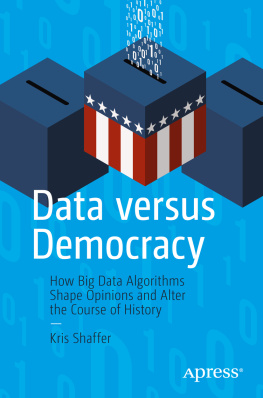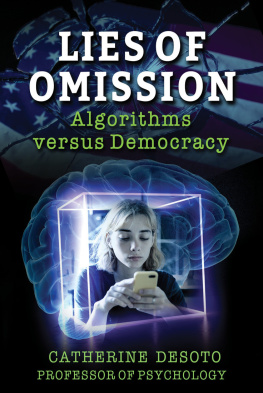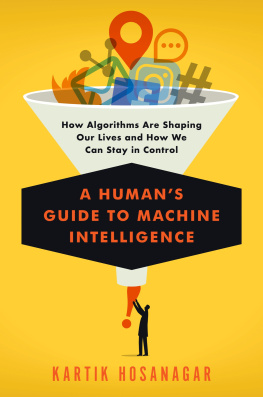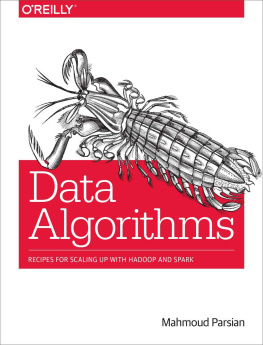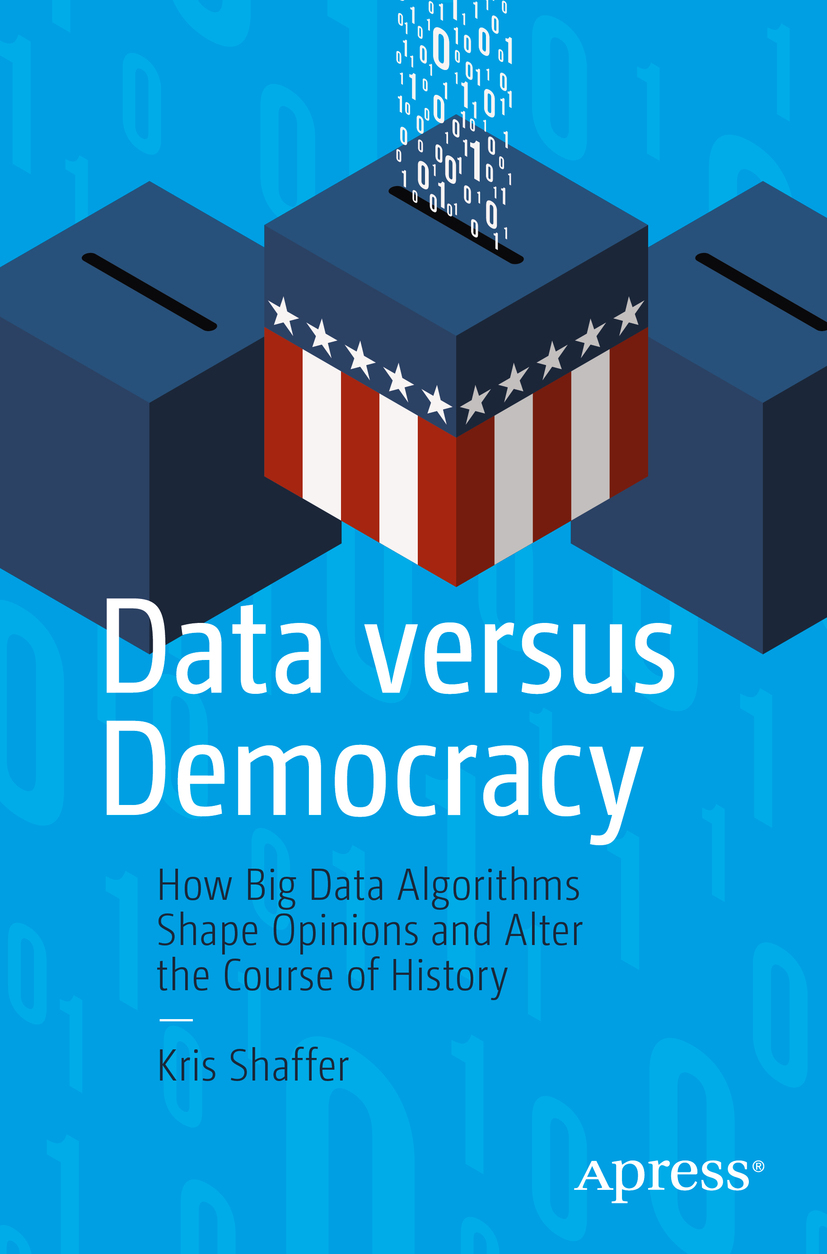Shaffer - Data Versus Democracy: How Big Data Algorithms Shape Opinions and Alter the Course of History
Here you can read online Shaffer - Data Versus Democracy: How Big Data Algorithms Shape Opinions and Alter the Course of History full text of the book (entire story) in english for free. Download pdf and epub, get meaning, cover and reviews about this ebook. year: 2019, publisher: Apress, genre: Romance novel. Description of the work, (preface) as well as reviews are available. Best literature library LitArk.com created for fans of good reading and offers a wide selection of genres:
Romance novel
Science fiction
Adventure
Detective
Science
History
Home and family
Prose
Art
Politics
Computer
Non-fiction
Religion
Business
Children
Humor
Choose a favorite category and find really read worthwhile books. Enjoy immersion in the world of imagination, feel the emotions of the characters or learn something new for yourself, make an fascinating discovery.
- Book:Data Versus Democracy: How Big Data Algorithms Shape Opinions and Alter the Course of History
- Author:
- Publisher:Apress
- Genre:
- Year:2019
- Rating:5 / 5
- Favourites:Add to favourites
- Your mark:
Data Versus Democracy: How Big Data Algorithms Shape Opinions and Alter the Course of History: summary, description and annotation
We offer to read an annotation, description, summary or preface (depends on what the author of the book "Data Versus Democracy: How Big Data Algorithms Shape Opinions and Alter the Course of History" wrote himself). If you haven't found the necessary information about the book — write in the comments, we will try to find it.
In this book, algorithmic recommendations, clickbait, familiarity bias, propaganda, and other pivotal concepts are analyzed and then expanded upon via fascinating and timely case studies: the 2016 US presidential election, Ferguson, GamerGate, international political movements, and more events that come to affect every one of us. What are the implications of how we engage with information in the digital age?Data versus Democracyexplores this topic and an abundance of related crucial questions. We live in a culture vastly different from any that has come before. In a society where engagement is currency, we are the product. Understanding the value of our attention, how organizations operate based on this concept, and how engagement can be used against our best interests is essential in responsibly equipping ourselves against the perils of disinformation.
Who This Book Is For
Individuals who are curious about how social media algorithms work and how they can be manipulated to influence culture. Social media managers, data scientists, data administrators, and educators will find this book particularly relevant to their work.
Shaffer: author's other books
Who wrote Data Versus Democracy: How Big Data Algorithms Shape Opinions and Alter the Course of History? Find out the surname, the name of the author of the book and a list of all author's works by series.

